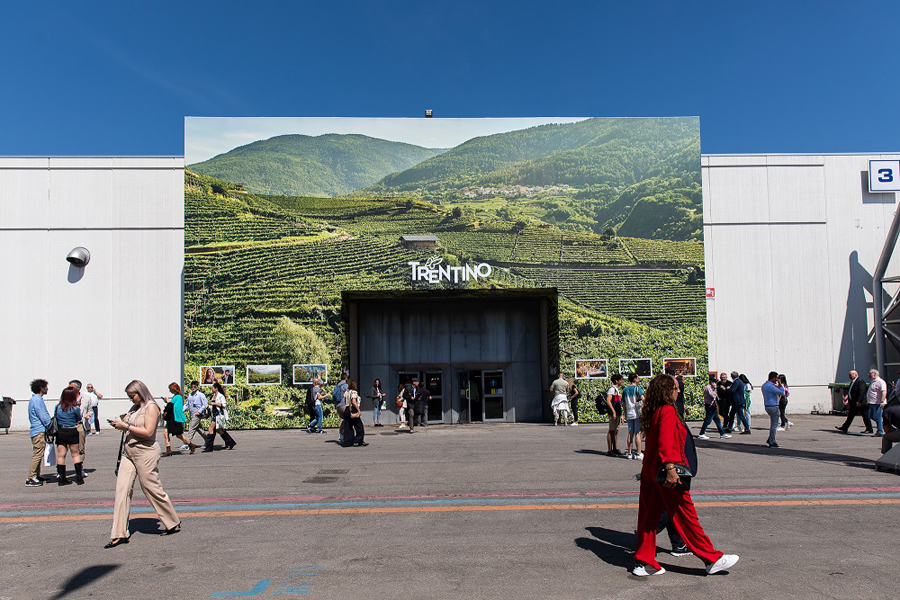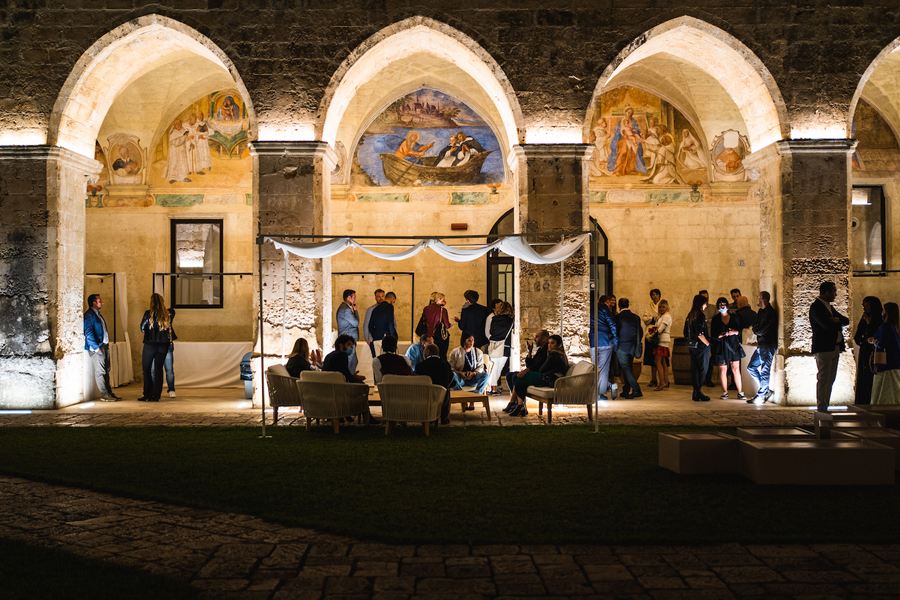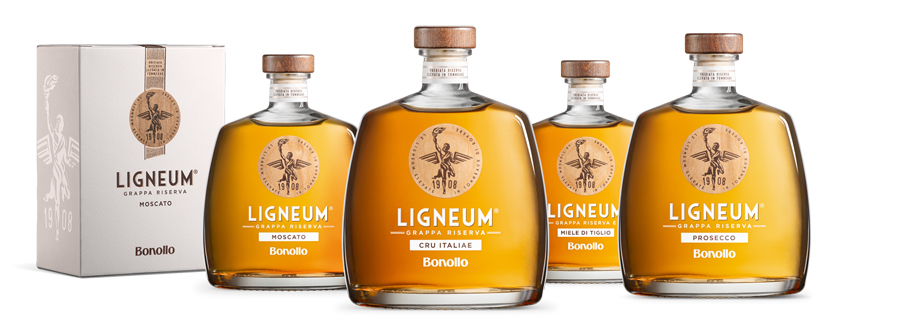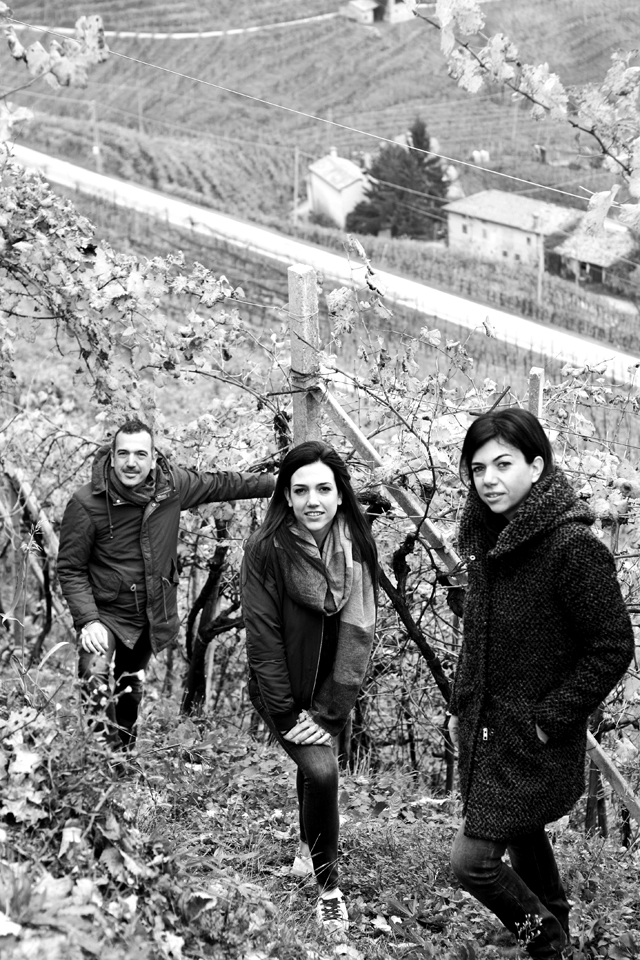On Tuesday 15 and Wednesday 16 April, the capital of Salento will host “FoodExp – International Forum of Food and Wine and Hotel Hospitality”, one of the most important and appreciated Italian events in the sector. On the theme of “DNA Evolution”, the eighth edition will offer an in-depth look at research, experimentation, techniques, international contaminations, new trends, and the challenges of modernity. Around sixty speakers and prestigious guests will be involved in well-established events such as talks, masterclasses, tastings, samplings, wine tastings, the world of pizza, “memorable” lunches and gala dinners, and surprising new features such as new experimental laboratories, a hackathon, and a competition for students.
Talks, masterclasses, tastings, experimental workshops, tastings, the world of pizza, a hackathon, a competition for students, “memorable” lunches and gala dinners with over seventy Italian and foreign guests, including consolidated certainties and important novelties, and thousands of enthusiasts and professionals, coming from all over the region and beyond: on Tuesday 15 and Wednesday 16 April, in the Chiostro dei Domenicani in Lecce , FoodExp – International Forum of Food and Wine and Hotel Hospitality returns, conceived and organized by Sinext under the direction of Giovanni Pizzolante , in collaboration with the Puglia Region , Puglia Promozione and numerous public and private partners . Every year, since 2018, the event has told the story of Italian cuisine and catering, their historical references, ties with the territory, dialogue with the world and connections with related sectors, starting with the hotel industry. After “ DNA – Origins and contaminations of Italian cuisine ”, in this eighth edition, FoodExp aims to take a further step forward: trying to anticipate the future, identifying emerging trends that, for better or worse, are transforming the sector, redrawing its prospects. An analysis that will be conducted thanks to the contribution of great personalities following the theme chosen for 2025: ” DNA Evolution. Experimental laboratories | International techniques and contaminations “. THE THEME – «In the past we have focused on the DNA of Italian cuisine and how this has changed over the decades, faced with the gastrocultural influence born from the growing comparison with the world», explains Giovanni Pizzolante. «This time, however, we have the ambition to analyze the prospects, starting from an assumption: if our DNA has changed – a little or a lot – how can we predict if and how it will change in the near future?». “DNA Evolution” will thus tell the story of research, experimentation, contamination, new trends, the challenges of modernity, the approach towards ever greater environmental and economic sustainability, the very perspectives of Mediterranean cuisine (or the new Mediterranean cuisine, if you like), even the changing relationship with food in years in which climate change requires dealing with an increasingly rich, perhaps unique, but in turn changing Italian biodiversity. GUESTS AND COLLABORATIONS – International guests include the Japanese Takefumi Hamada , founder and CEO of Access All Area Inc Japan, a gastronomy expert and tireless traveler, food journalists Jocelyn Chen and Anastasia Avramenko , Xin Ge Liu (Il Gusto di Xin Ge – Florence), the starred Richard Abou Zaki , born in Romania but moved to Italy at the age of 5 (Restroscena* – Porto San Giorgio, Fermo), the Colombian Roy Salomon Caceres (Orma* – Rome). Important collaborations with the Basque Culinary Center of San Sebastian , with the participation of the Swedish chef and director John Regefalk and Natalia Villamor Sobero , and Alma Scuola di Cucina Internazionale Italiana , the highest educational expression in the world of European cuisine. There will also be the competition “ Sauces for every shape ” in collaboration with Monograno Felicetti , with students from the IISS “Presta-Columella” of Lecce , invited to invent original sauces dedicated to different shapes of pasta, a symbol of the richness of Italian cuisine. TALK, HACKATHON, THEATRES – Chefs, pizza Chefs, pastry chefs, mixologists, maîtres, bartenders, sommeliers, restaurant managers, exponents of the wine and hotel sectors, journalists, creatives, trainers, communicators and institutional representatives will meet and discuss to tell the contemporary identity and possible future scenarios of the gastronomic and culinary culture of our country. The program will be, as always, rich and varied with well-established events and surprising new ones. While on the first day the Talk Room will be reserved for institutional activities and thematic insights, the second day will be dedicated to the story of the results of the first edition of Hackfest Hospitality Tourist Puglia – organized in November by Sinext, in collaboration with Regione Puglia, Bahms, The Qube, with the media partnership of Forbes magazine – and to the creation of a new hackathon ” Food Edition ” to complete the path undertaken and try to respond in a concrete and creative way to the needs for advanced skills in food and wine and contemporary hospitality. FoodExp is, in fact, one of the events recognized and promoted by the Apulian institutions which, in this context, are called to dialogue and interact on strategic issues such as tourism promotion, economic development, training. On the two stages of the Teatro del Gusto, great protagonists of the Italian and international food & beverage world will take turns with live moments, show cooking and cooking techniques focused on many themes (Mediterranean, territories, sustainability, seasonality, biodiversity, taste, management costs, plant revolution, coffee and many others) with particular attention to the new frontiers of mixology, pizza and pastry making. EXPERIMENTAL LABORATORIES – An absolute novelty, however, will be the Experimental Laboratories , real lessons where masters and young champions will talk about their new frontier in research applied to food: they will be technical masterclasses, for professionals who want to delve into the methods (new or very ancient, forgotten and recovered) of processing raw materials, or for all enthusiasts who love to know how food 2.0 is transformed. ONLY THE BEST AND FOODEXP GOURMET – The stands of the “Only the best” exhibition area will be positioned under the portico, dedicated to companies in the wine sector, in collaboration with the Italian Sommelier Association – Lecce, and food with the possibility of guided tastings. Don’t miss the innovative proposal of FoodExp Gourmet with Simone Grasso (Le Dune Suite Hotel – Porto Cesareo), Vincenzo Stifani (Palazzo Presta – Gallipoli), Samuele Toma (Sinodia – Corigliano D’Otranto), Alessia Racaniello (Macari Bistrot – Bari), Vito Gaballo (Il Pettolino – Gallipoli), Fabio Vulpitta (Aqua – Porto Cesareo), Alessio Panarella (Duca – Ugento), Agostino Bartoli (Gatto Rosso – Taranto), Daniel Cavuoto (Hagakure Noh Samba – Bari), Giorgio Vantaggiato (Koria – Corigliano D’Otranto), Massimiliano Tasselli (The Cuisine of Sips and Speeches – Taviano). MEMORABLE LUNCHES AND GALA DINNERS – Like every year, the program also includes unmissable dinners with the protagonists of the new wave of signature cuisine: exceptional lunches – not surprisingly called “The Memorabili” – in which starred chefs will propose an exclusive tasting itinerary designed for the occasion, and spectacular gala dinners, authentic events of taste that will see some of the most important brigades in Italy join together in new and extraordinary culinary collaborations. The lunches will involve Michele Spadaro , Cosimo Colucci and Valentina Lenoci of Pashà* in Conversano (Tuesday 15) and Richard Abou Zaki of Retroscena* in Porto San Giorgio (Wednesday 16). The preview on Monday 14th will feature a Welcome Dinner at Fran di Masseria Francescani in Torre Chianca with resident chef Leonardo D’Ingeo supported by Jacopo Ticchi (Da Lucio – Rimini), Roy Salomon Caceres (Orma* – Rome), Xin Ge Lu (Il Gusto di Xin Ge – Florence), Enrico Marmo (Balzi Rossi* – Ventimiglia), Mattia Pecis (Cracco Portofino), Franco Pepe (Pepe in grani – Caiazzo) and the after dinner with Martina Bonci (Gucci Giardino 25 – Florence) and Paolo Scialpi (Masseria Francescani). Then on Tuesday 15th at Torre del Parco the dinner will involve Francesco Sodano (Family Rana * – Oppeano, Verona), Domingo Schingaro (I Due Camini * of Borgo Egnazia – Fasano, Brindisi), Ciro Scamardella (Pipero * – Rome), Luigi Taglienti (I Luigi Taglienti – Piacenza), Davide Di Fabio (Dalla Gioconda ** – Gabicce Monte, Pesaro Urbino), Pietro Penna (Casamatta ** of the Vinilia Resort – Manduria, Taranto), Matteo Romano, Francesco Pellegrino and Martina Tramis (Lilith – Vernole, Lecce). Finally closing at the Chiostro dei Domenicani with Denis Lovatel (Denis – Milan), Ciccio Vitiello (Cambia-Menti – Caserta), Andrea Catalano (Dissapore * – Carovigno, Brindisi), Peppe Guida (Antica Osteria Nonna Rosa * – Vico Equense, Naples), Fabio Vulpitta (Aqua Restaurant – Porto Cesareo, Lecce), Donato Piscopo (Gimmy Restaurant at the Chiostro dei Domenicani – Lecce), Manuel Ferrari (Mistral di Villa Serbelloni – Bellagio, Como), Alessio Gallelli (Pellico 3 at the Park Hyatt – Milan). TICKET – Entrance to the Chiostro will also be free this year with registration on the website www.foodexp.it or by invitation, to experience the FoodExp world and attend meetings, theaters and performances. The Forum in this way wants to promote and encourage the presence of all people (students, professionals, journalists, communicators, industry insiders, curious people, tourists) who want to explore the issues and discover new realities. Tickets for tasting spaces, lunches and dinners are already available on the site. THE PARTNERS – FoodExp could not exist without the support of many partners, old and new. Main sponsors of the 2025 edition are Agugiaro & Figna , Acqua Panna-S.Pellegrino , Felicetti , Berlucchi , Alma , Berto’s, Novaleas , Banca Popolare Pugliese , Associazione Italiana Sommelier – Lecce , Le Dune Group . The event is co-financed by the European Union , the Italian Republic , the Puglia Region , the Department of Tourism with Pugliapromozione | POC Puglia 2014-2020 Axis VI, Action 6.8 .




